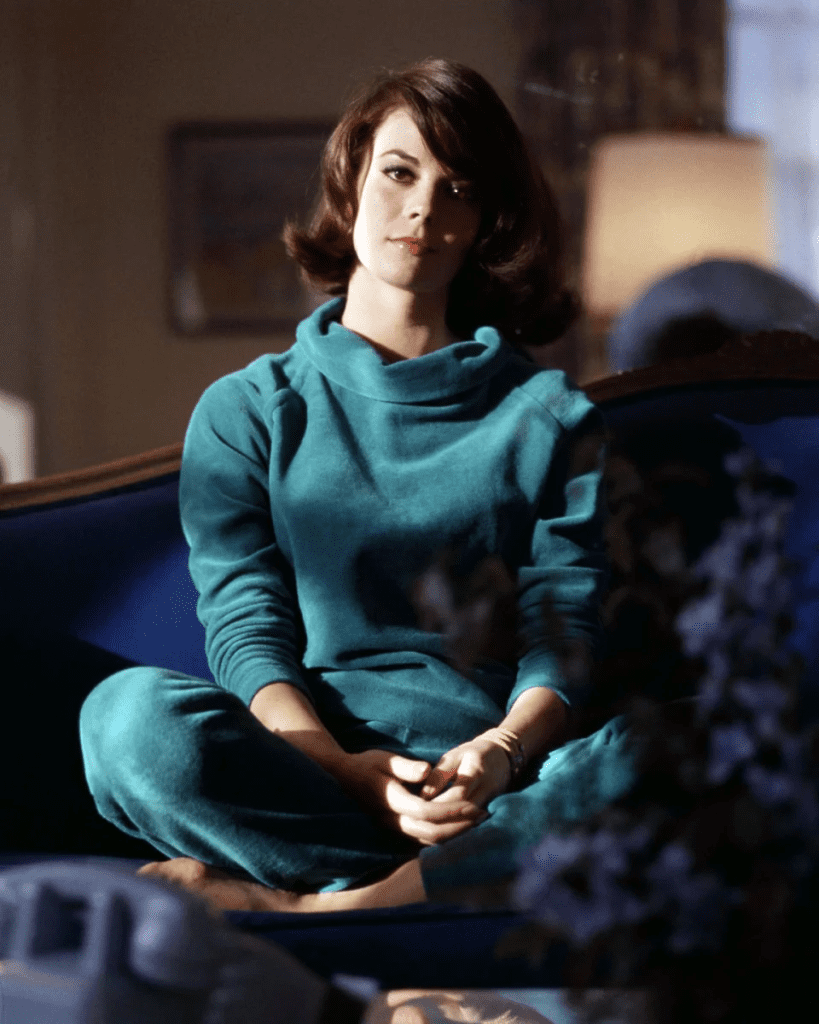Natalie Wood remains one of Hollywood’s most captivating and enigmatic figures. From her meteoric rise as a child star to her celebrated roles in Rebel Without a Cause and West Side Story, Wood’s career epitomized the Golden Age of Hollywood. Yet, behind her dazzling smile and screen presence lay a life marred by tragedy, controversy, and an untimely, mysterious death that still raises questions to this day.
A Star is Born: From Natalia to Natalie

Born Natalia Nikolaevna Zakharenko on July 20, 1938, in San Francisco, California, Wood came from humble beginnings. Her parents were Russian immigrants who sought to build a better life in America. From an early age, it was clear Natalie was destined for greatness.
Discovered at just four years old, Wood’s first film role came in Happy Land (1943). Director Irving Pichel recognized her talent and encouraged her family to move to Los Angeles, where she adopted the stage name “Natalie Wood.” Her first major success came in Miracle on 34th Street (1947), a holiday classic that solidified her as a child star.
The Transition from Child Star to Leading Lady
Navigating Hollywood’s treacherous waters as a young actor was no easy feat, but Wood’s determination and talent shone through. At 16, she delivered a breakout performance in Rebel Without a Cause (1955), starring alongside James Dean. Her portrayal of Judy earned her an Academy Award nomination for Best Supporting Actress, marking her transition from child star to mature actress.
Her career flourished in the late 1950s and 1960s with roles in Splendor in the Grass (1961) and the iconic musical West Side Story (1961). While her performance in West Side Story captivated audiences, the film’s producers controversially chose to dub her singing voice, a decision that frustrated the star.
Behind the Glamour: Natalie’s Turbulent Personal Life
Despite her on-screen success, Wood’s personal life was fraught with challenges. Raised in a controlling environment, her mother, Maria, was infamous for pushing Natalie into the spotlight. According to biographer Suzanne Finstad, Maria even orchestrated traumatic experiences, such as exposing her daughter to animal cruelty, to elicit genuine emotions for acting roles.
As a young woman, Natalie faced numerous rumors of inappropriate advances from powerful Hollywood figures. One of the most shocking allegations involves actor Kirk Douglas, whom her sister, Lana Wood, claims assaulted Natalie when she was just 16. The alleged incident, detailed in Lana’s memoir, highlights the darker side of Hollywood during its golden era.
Love and Heartbreak: Robert Wagner and Romantic Turmoil

Wood’s love life was as dramatic as her film roles. In 1957, she married actor Robert Wagner in what appeared to be a Hollywood fairy tale. However, their marriage ended in 1962, amid rumors of infidelity.
After a series of high-profile relationships, including a tumultuous romance with Warren Beatty, Natalie reunited with Wagner in 1972. The couple remarried, but their second union would end in tragedy.
The Mystery of Her Death: A Case That Still Haunts Hollywood
On November 29, 1981, Wood drowned off Catalina Island, California, while on a yacht trip with Wagner, actor Christopher Walken, and the boat’s captain, Dennis Davern. At the time, her death was ruled an accidental drowning, with authorities citing intoxication as a contributing factor.
However, inconsistencies in the accounts of that night have fueled speculation for decades. Bruises on Natalie’s body, conflicting witness statements, and a heated argument between her and Wagner just hours before her death have led many to question the official narrative.

In 2011, the case was reopened after Davern alleged that Wagner’s actions played a role in Natalie’s death. While Wagner has denied any wrongdoing, the cause of her death was amended in 2012 to “drowning and other undetermined factors.”
To this day, her death remains one of Hollywood’s most enduring mysteries, leaving fans and investigators searching for answers.
A Legacy That Lives On

Despite the controversies and tragedies that overshadowed her life, Natalie Wood’s legacy endures. Her performances continue to inspire, and her influence on Hollywood remains undeniable. Films like Miracle on 34th Street and West Side Story have become timeless classics, while her bold choices and advocacy for creative freedom paved the way for future generations of actresses.
Wood’s story is a poignant reminder of the complexities behind fame and the human cost of Hollywood stardom. She was a woman of immense talent and beauty, who, despite the challenges she faced, left an indelible mark on the world of cinema.
In reflecting on her life, one cannot help but be moved by her resilience and passion for her craft. Natalie Wood’s star burned bright, and even in her absence, her light continues to shine.


